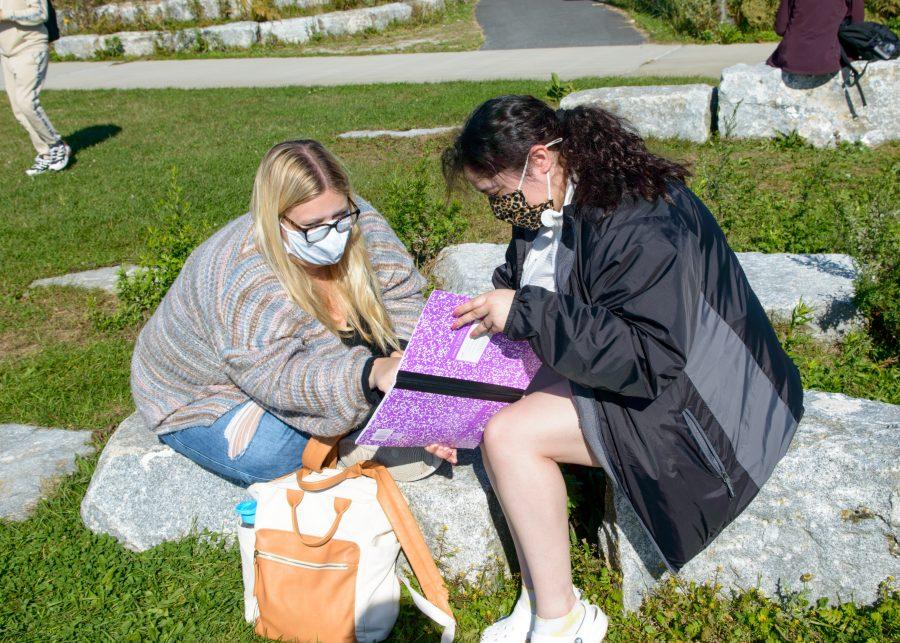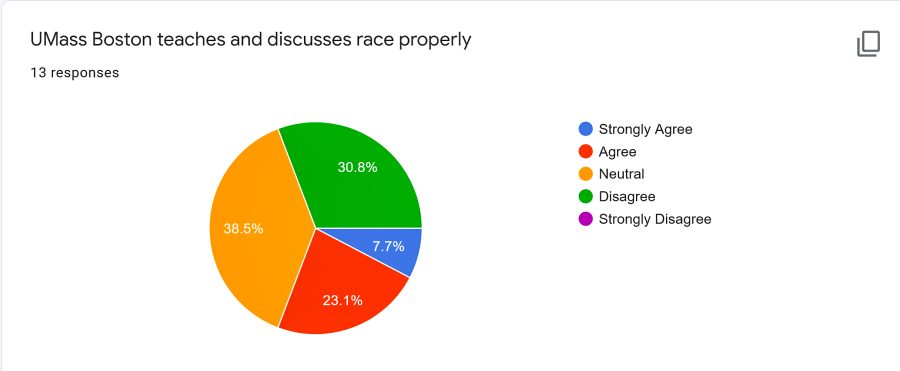As one of the most diverse college campuses in the United States, UMass Boston is a shining light of diversity in the city. As the only public university in all of Boston, UMass Boston is often the university of choice for many low-income families, with many of these families being people of color. As the city of Boston remains one of the most racially and socioeconomically segregated cities in the entire United States, UMass Boston is one of the avenues that low-income families can take to enter the middle class. I spoke to several UMass Boston students and asked them how they felt about the current state of race relations at UMass Boston. Both people of color and non-people of color were interviewed for this survey.
First, let’s take a look at the demographics of UMass Boston. All data is provided by Data USA. In the year 2019, 40 percent of the student body was white and 16 percent of the students were Hispanic or Latino. Another 16 percent of the student body was black and 12 percent were classified as non-resident aliens. 13 percent of the student body was Asian. Three percent were classified as other Native American classifications. (1)
To get a better idea of the current state of race relations at the university, I anonymously surveyed 13 students to learn more about their feelings regarding race on campus. Although this sample size is limited, students were sampled from several racial backgrounds. They were prompted to answer a series of questions about the issue of race at UMass Boston. Observing their answers helps to provide some information regarding how students see race relations on campus, albeit a small peek into the sentiments shared by the student body. Students were given a statement regarding race at UMass Boston and were asked to rate their feelings from strongly agree to strongly disagree. The anonymous nature of this survey meant that students were able to report their feelings freely.
Statement 1: UMass Boston teaches and discusses race properly.
Responses:
Strongly Agree: 7.7 percent; Agree: 23.1 percent; Neutral: 38.5 percent; Disagree: 30.8 percent; Strongly Disagree: 0 percent.
UMass Boston holds a responsibility to educate its students in matters concerning socioeconomic, racial and ethnic inequality. According to this survey, nearly 70 percent of students do not agree with this statement. This unfortunate reality suggests that many UMass Boston students don’t think that the university is teaching race properly. Although UMass Boston has required diversity training, students seem dissatisfied with the current state of how race is taught in our university.
Statement 2: I am able to interact with peers without feeling as though they judge me for my skin color.
Responses:
Strongly Agree: 38.5 percent; Agree: 46.2 percent; Neutral: 15.4 percent; Disagree: 0 percent; Strongly Disagree: 0 percent.
These responses clearly illustrate UMass Boston as a safe place for people of many different races. The respondents of this survey clearly believed that they do not feel judged based on their skin color. Although 15.4 percent of students responded “neutral” to this statement, it seems that the majority of students surveyed found UMass Boston to be a welcoming environment for everyone, regardless of race.
As issues surrounding race continue to find their way into the news and into our social interactions, we must continue to fight for racial equality throughout our university and throughout the United States. Our university, while not perfect, does provide a welcoming environment for people of all races. As a person of color myself, while I see UMass Boston as a good environment for me and other students of color, I think there are many issues that must be addressed, particularly involving the white savior complex. (2) As you continue your educational degree, be sure to stay aware of issues surrounding racial inequality and do your part in fighting it, calling it out and holding yourself and others accountable.
-
https://datausa.io/profile/university/university-of-massachusetts-boston#about
-
https://www.theatlantic.com/international/archive/2012/03/the-white-savior-industrial-complex/254843/
Pie graph from survey.






















































